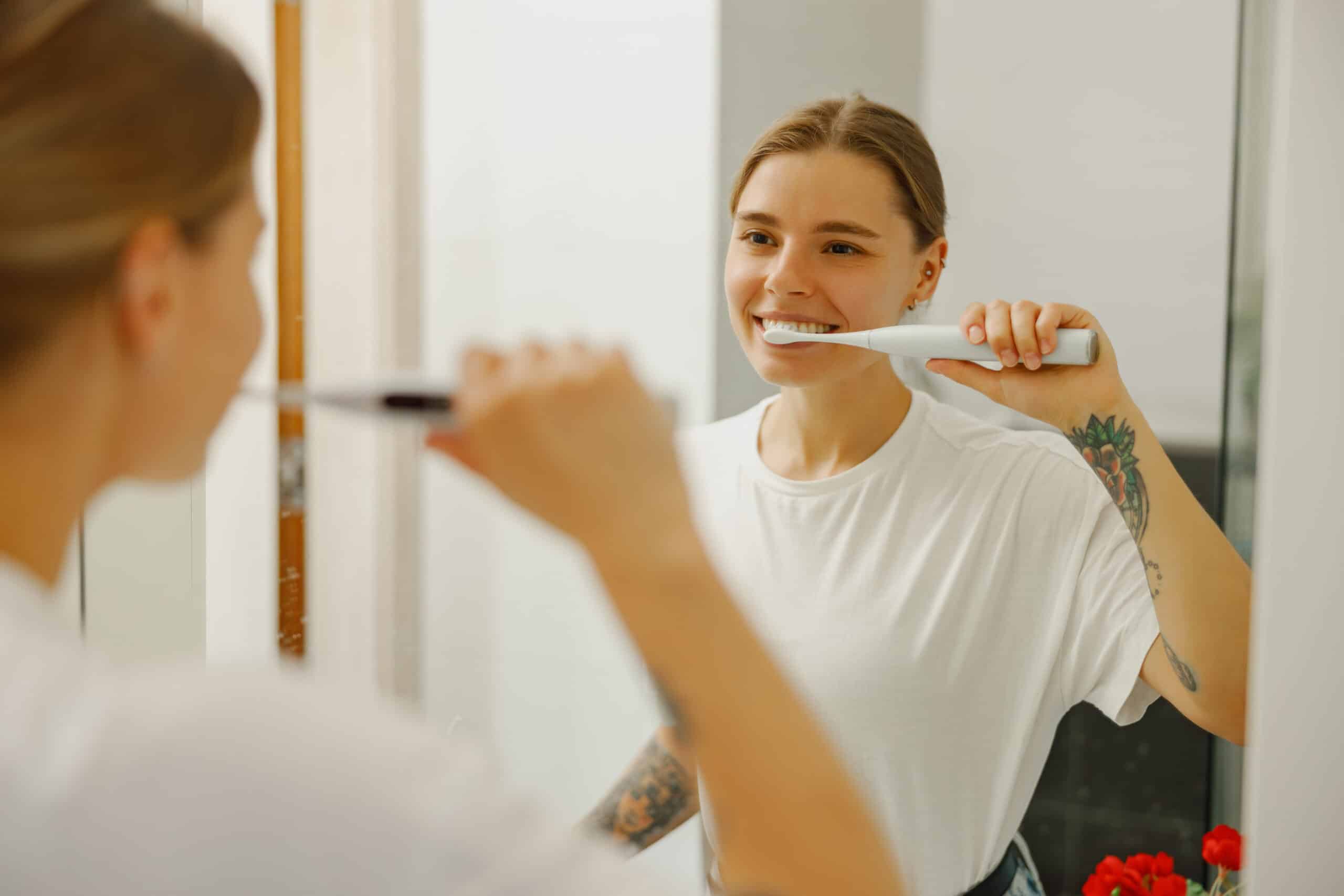- Teeth Bonding: What You Need to Know
- What is the Dental Bonding Procedure?
- Advantages and Disadvantages of Tooth Bonding
- Risks of Tooth Bonding
- What Should I Expect from Your Dental Bonding Services?
- Other Restorative Options to Compare Dental Bonding With?
- How Do I Care for Bonded Teeth?
- What Is the Lifespan of Bonded Teeth?
Chipped or cracked teeth can hurt a person’s confidence, sometimes so much so that they might refuse to smile for pictures, videos, or during happy occasions. It’s a shame because smiling is good for you and positively affects your outlook and mood.
Cracks and chips can also lead to other oral health problems such as decayed teeth because the protective outer natural enamel has been compromised.
The good news is that there’s an easy solution to repairing those annoying chips and cracks and giving you back the healthy smile you deserve: dental bonding.
Teeth Bonding: What You Need to Know
Dental bonding is a simple process that your dentist will use to fix tooth cracks or chips with minimal removal of tooth structure.
The substance that dentists use for dental bonding is a type of composite resin that can be coloured to match the patient’s teeth. Once the resin hardens, you’ll barely notice it’s there! The tooth bond is very strong and will last for several years when taken care of properly.
What is the Dental Bonding Procedure?
The tooth bonding procedure is much easier than you might think! To start the bonding process, the dentist will roughen the tooth area to which the tooth-coloured resin material is applied. The dentist will then determine the best colour of material to use so that the final result matches to your natural tooth colour as much as possible.
After the resin has been applied, the dentist will shape the material to blend with the tooth. Then the dentist will use a special light to harden the composite resin. Once the composite material has set, the dentist may use tools to reduce any excess resin and shape and polish the bonding material.
The entire dental bonding treatment is completed in a single visit, although your dentist may want to check the bonds at a subsequent dental visit.
Advantages and Disadvantages of Tooth Bonding
As with any procedure, dental composite bonding carries certain advantages and disadvantages that can weigh into your decision whether to go through the dental bonding process.
- Low cost: Dental bonding is less e expensive in comparison to other options like crowns and veneers
- Convenient: A person can have the procedure done to many teeth at a single dental visit
- Versatile: Dental bonding can help fix many dental issues, such as tooth discoloration, chips, cosmetic cracks, and more
- Low invasiveness: Bonding requires minimal enamel removal, so if you ever change your mind about the treatment, the resin can be easily removed without permanently damaging your teeth
Disadvantages of Tooth Bonding
- Prone to staining: Dental bonds can become stained when consume excessive dark foods and beverages such as red wine, blueberries, and coffee
- Not as durable: The composite resin is more prone to breakage than crowns or veneers
Your dentist will discuss all of the advantages and disadvantages with you to help you make an informed decision.
Risks of Tooth Bonding
Fortunately, there aren’t any major risks with the dental bonding procedure. However, there is a risk that the resin can be chipped, damaged, or discoloured after being applied. Please see below for proper dental bond care instructions or ask your dentist for their advice.
What Should I Expect from Your Dental Bonding Services?
When you need dental bonding in Toronto, Yonge Eglinton Dental can help with a quick and easy dental process. We’ll ensure you’re comfortable throughout the entire procedure and answer any questions you have. Our goal is to help you make the best decision for your particular dental needs.
Other Restorative Options to Compare Dental Bonding With?
Depending on the severity of your tooth’s condition, your dentist may recommend other options to help restore your smile, such as a crown or veneers.
- Dental crown: A dental crown is a type of cap that is placed over the problem tooth to protect it from infections and further damage
- Porcelain veneers: Porcelain veneers are a type of material that gets placed on the front of your natural tooth enamel to improve the tooth’s appearance
At Yonge Eglinton Dental, we’ll be sure to recommend the dental procedure that’s best to address your particular dental concern.
How Do I Care for Bonded Teeth?
Once your teeth have been repaired, there are several things you can do to keep your bonded teeth looking as perfect as possible for years:
- Avoid consuming excessive amounts of tea or coffee to prevent staining the resin and thus permanently changing the colour
- Avoid biting your nails or grinding your teeth
- Be sure to brush your teeth twice per day and floss twice per day
- Visit your dentist for regular check-ups and cleanings
What Is the Lifespan of Bonded Teeth?
There are no reliable timelines for the lifespan of dental bonds as many different factors play into how they look and perform. For example, the resin can become discoloured over time, unlike with porcelain or other ceramic materials. Plus, normal everyday wear can diminish the bond’s strength, depending on its size, shape, and location. Your dentist can reshape or polish the bond to help them last as long as possible. Your bonded teeth might not last forever, but by practicing optimal oral hygiene practices and seeing your dentist regularly for cleaning, your healthy teeth and smile have their best chance at lasting a lifetime!
What is dental bonding and what should I expect? Visit the dental team at Yonge Eglinton Dental in Toronto to learn all about dental bonding
When you need help with chips or cracks in your teeth or any other dental health issue, come see our dental team at Yonge Eglinton Dental. We focus on protecting the health of your teeth with solutions that also focus on overall health and well-being. Make an appointment for an office visit today by calling our office at 416-932-2222 or booking online. We look forward to seeing you!
Are you concerned about visiting the dentist? Read about how we protect the health and safety of our patients and staff so your family can seek proper dental care with peace of mind.








